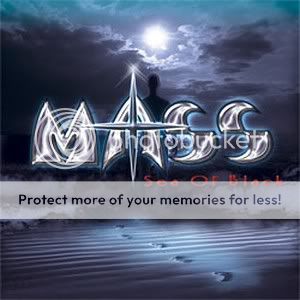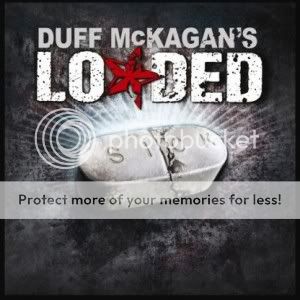Since we’ve previously featured a soccer related review at Real Gone – the excellent third album by Alexi Lalas – you could be forgiven for thinking we’ve gone down that path again, since this band is fronted by Marco Ferreira. However, the frontman of this band is not the Portuguese winger…
Marco Ferreira – the Brazilian born vocalist/guitarist – mightn’t be a household name, but his career has been a busy one. The debut album under the Ferreira band name (featuring his brother Alex on drums) was released in 2002, after which Marco joined the French progressive metal band Venturia, with whom he recorded two albums. He then set off to record his first solo album, which was self-released in 2008.
Released eight years after their debut album, comes this second album from the Ferreira band. This release sees Marco teamed up with his brother once again – alongside Patrick Sebastian on lead guitar and bassist Gus Monsanto. Housed in a clichéd fire-and-brimstone style sleeve, ‘Better Run!!!’ has its heavy moments, but isn’t quite as heavy as some of you may be expecting, looking at that artwork. In all, it offers ten songs steeped in a hard rock chug, balanced out, in the main, by multi-vocalled, melodic choruses.
The mid-paced riff at the core of ‘Secret Damned Society’ is typical of most of the album’s style, despite the opening featuring some faster guitar work. When the chorus arrives with its harmony vocals, things settle in a little more. Ferreira’s brand of Dokken style hard rock works well here – as it does throughout most of the disc – and while the opening may suggest there are guitar histrionics somewhere on the horizon, lead guitarist Patrick Sebastian’s style of playing shows more restraint than some of his peers and influences for the most part. ‘Rescue Me (Will You Be Ready)’ takes similar elements but uses most of them in a more confident fashion: the riff is a decent hard rocker; the harmony vocals are firmly in place and the guitar work during verses show a lightness in places – a lightness not always heard elsewhere on the album. The major down side is that the band should have made better use of a chorus (with this kind of rock, one line repeated isn’t quite enough). On the flip side, Sebastian turns in a decent – if short – guitar solo.
‘I Want Out’ – one of the album’s faster numbers – highlights why the band is better off sticking to a mid pace. When stepped up a gear, things veer too far towards early Malmsteen territory – it’s not a great leap of imagination to picture what this could have sounded like with Jeff Scott Soto wailing over it at full pelt during his younger years. The title track features a decent guitar solo and an enjoyable riff (even if it’s a standard mid-paced one you’ve almost certainly heard hundreds of times before) but those looking for more depth could be disappointed. ‘Rule In Self Defence’ is more interesting with its percussion heavy stomp between the verses which creates a more memorable rhythm; this shows great promise, however, it’s the chorus which is the high point. The harmony vocals are similar to those used elsewhere, but when combined with the slightly down-tuned riff there’s an echo of Dokken during their ‘Shadowlife’ album. Melodic rock purists are certain to whine about the grunginess here…but whatever they think, this seems to be a style which works well for the band.
‘Trust The Enemy’ represents the band at their most edgy. Employing a treated vocal in places to reinforce the anger (which doesn’t seem entirely necessary), it could have been dismissed as being heavy for the sake of it, but respite can be found in a more melodic chorus – which itself could have been used more effectively perhaps, but coupled with a simple hard rock guitar riff, it’s a number which manages to work well enough, even if it’s the album’s weak link.
For me, Ferreira are at their best when delivering the softer numbers. The album’s two power ballads alone make ‘Better Run!!!’ worth checking out. During ‘Knocking at My Door’, each of the musicians is given more breathing space and the softer edge of Marco Ferreira’s vocals provide excellent contrast to the power driven voice he uses elsewhere. The harmony vocals on the chorus are joined by a tasteful lead guitar part and the solo also shows a great control – it would have been easy for Marco to step things up a gear here and make the solo stand out. The staccato parts of ‘History We Make’ mightn’t lend itself to a power ballad, but once the pre-chorus vocals kick in, the band find a groove that evokes something which sounds slightly like something like Queensrÿche may have explored during their ‘Mindcrime’ late-80s golden age – if only they’d approached things more softly. (In fact, another review suggests this album sounds a lot like Queensrÿche – a comparison largely lost on me as a big ’Ryche fan…there are fleeting glimpses here of occasional Queensrÿche-isms, but as a general rule, Ferreira aren’t much like them at all).
Overall, ‘Better Run!!!’ is a hard rock release which, although workman-like in it’s approach and unlikely set the world afire on a grand scale, holds enough appeal for melodic rock fans – particularly for those who enjoy stuff from the harder end of the scale. Just don’t be put off by the “inspired by a second division eighties thrash band” artwork…
July 2010






